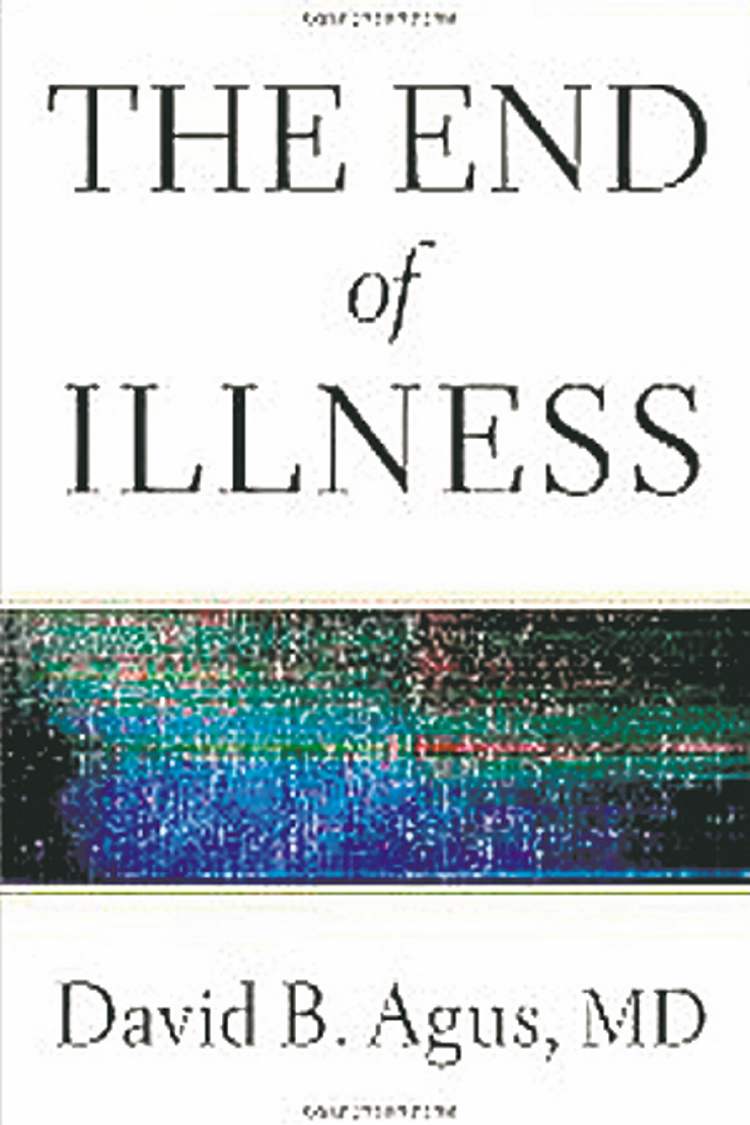You might want to get a second opinion on book on healthy living
Advertisement
Read this article for free:
or
Already have an account? Log in here »
To continue reading, please subscribe:
Monthly Digital Subscription
$0 for the first 4 weeks*
- Enjoy unlimited reading on winnipegfreepress.com
- Read the E-Edition, our digital replica newspaper
- Access News Break, our award-winning app
- Play interactive puzzles
*No charge for 4 weeks then price increases to the regular rate of $19.00 plus GST every four weeks. Offer available to new and qualified returning subscribers only. Cancel any time.
Monthly Digital Subscription
$4.75/week*
- Enjoy unlimited reading on winnipegfreepress.com
- Read the E-Edition, our digital replica newspaper
- Access News Break, our award-winning app
- Play interactive puzzles
*Billed as $19 plus GST every four weeks. Cancel any time.
To continue reading, please subscribe:
Add Free Press access to your Brandon Sun subscription for only an additional
$1 for the first 4 weeks*
*Your next subscription payment will increase by $1.00 and you will be charged $16.99 plus GST for four weeks. After four weeks, your payment will increase to $23.99 plus GST every four weeks.
Read unlimited articles for free today:
or
Already have an account? Log in here »
Hey there, time traveller!
This article was published 11/02/2012 (5016 days ago), so information in it may no longer be current.
THIS medical polemic offers passionate, varied, but sometimes questionable advice on how to live a long and healthy life.
The author, David Agus, is a California-based medical doctor who is highly trained and heavily committed to clinical and laboratory research in the field of cancer. This is his first book.
Agus uses his professional insights as the foundation for his theory on how to prevent serious conditions such as cancer, heart disease and dementia. His justification for tackling this subject is timely. People in the developed world are more commonly faced with diseases of decay, rather than the threats of sudden disaster or infectious disease.

Although we live longer lives than any previous generation, we do so while navigating the lifestyle excesses of modern existence, managing massive health-care costs and trying to delay the onset of chronic degenerative conditions.
The basis of Agus’s approach to disease prevention is plausible, but not especially novel. First, he explains how we function. The human body is composed of a series of complex, inter-dependent, and sensitive biological processes.
These systems are influenced by our genes and our behaviour. Even seemingly small changes to these processes trigger events that may be harmful to us and can eventually cause disease.
Agus then suggests some sensible solutions to achieve optimal health. Examples include a diet of healthy, unprocessed foods, and avoiding the use of dietary supplements of unproven value.
But his other ideas are more provocative. For starters, we should accept personal responsibility for our individual health by keeping informed, and by embracing novel technology.
He praises the use of Internet-based information as a tool for health education and research. He recommends the prostate specific antigen (PSA) test for the early detection of prostate cancer in healthy individuals.
However, he does not caution the reader that recent studies have seriously challenged the benefits of the PSA screening test. He also urges us to undergo testing at his own laboratory in order to know about our genetic propensity to a list of other serious maladies.
Only some of the conditions that can be predicted in his laboratory are preventable or treatable by lifestyle changes or medications. Moreover, that Agus supports testing in facilities from which he stands to profit represents conflict of interest: this threat to his credibility is not clearly acknowledged.
Agus’s suggestion that our health challenges are our personal responsibility is flawed in other respects. He fails to recognize the importance of public policy as a major determinant of health.
Although he emphasizes the importance maintaining a metabolic balance within the human body, we are similarly dependent on external pathways to health, including the organization of our society, our economic disparities, and our natural and built environments.
Agus hobnobs with some of the world’s great thinkers by quoting them liberally. The most succinct comes at the book’s start, where Plato instructs us that “the part can never be well unless the whole is well.”
This simple sentence is arguably the most potent and coherent one in the book. Following it are some eloquent ideas about health and disease in the 21st century, mixed with a few anecdotes and some unproven medical advice.
Agus attempts to equip the North American reader with the knowledge and skills to prevent chronic disease in a technology-driven environment. He provides an eclectic but patchy road map for achieving this goal. Consequently, the reader may be left with a sense of anxiety rather than one of empowerment and well-being.
Matthew Seftel is a Winnipeg-based academic physician.
History
Updated on Thursday, February 16, 2012 4:50 PM CST: corrects spelling of reviewer's name, adds fact box



